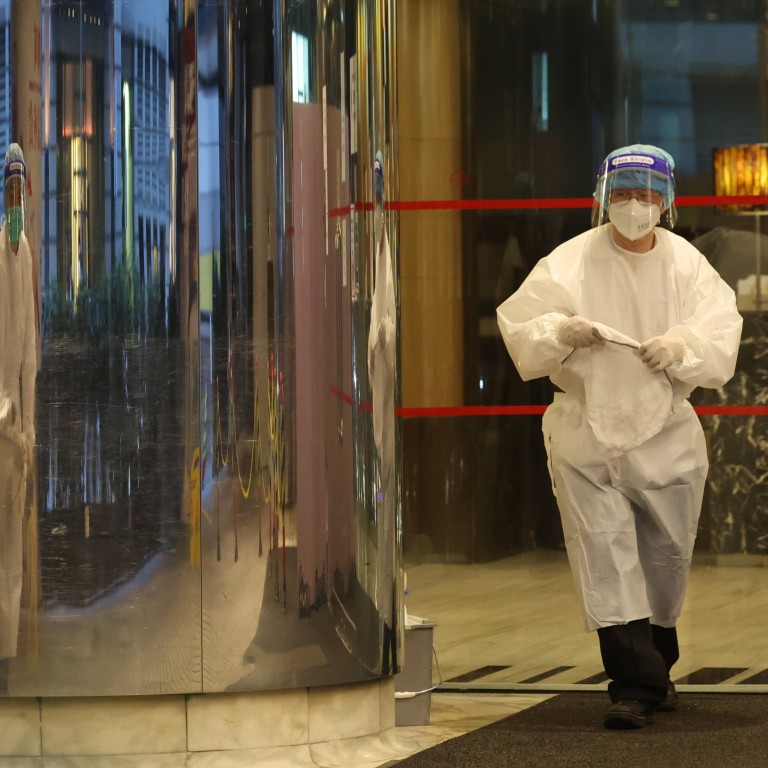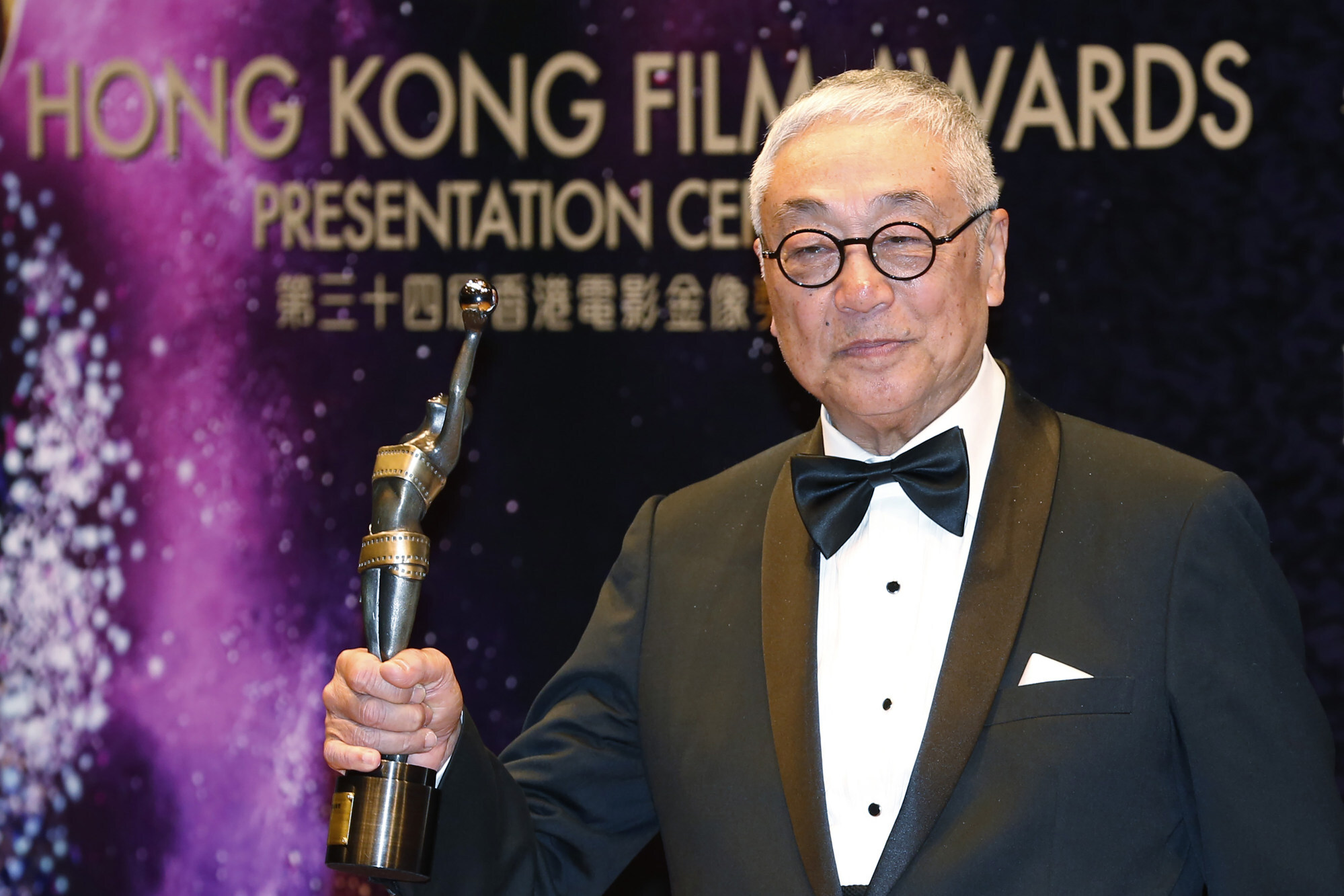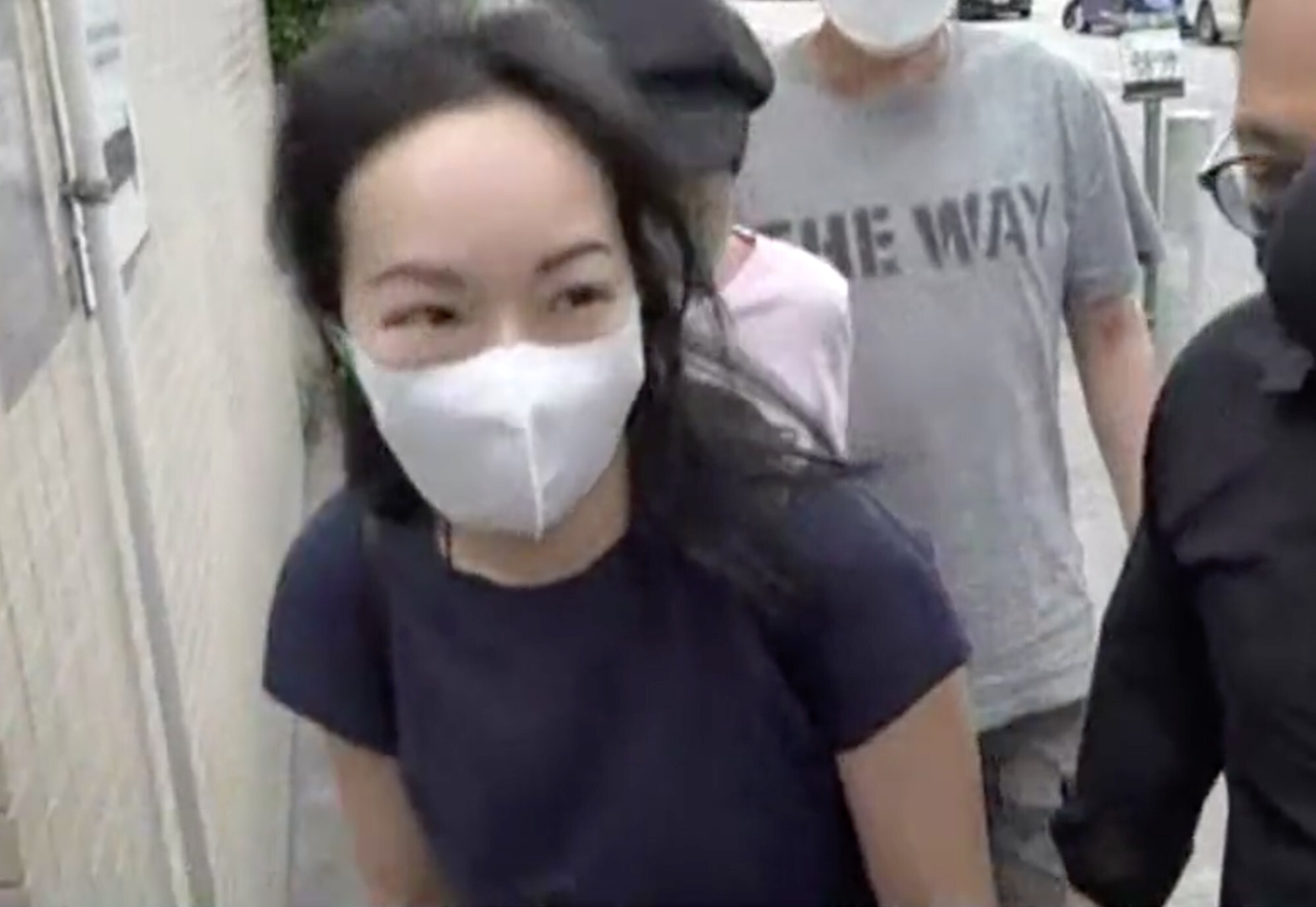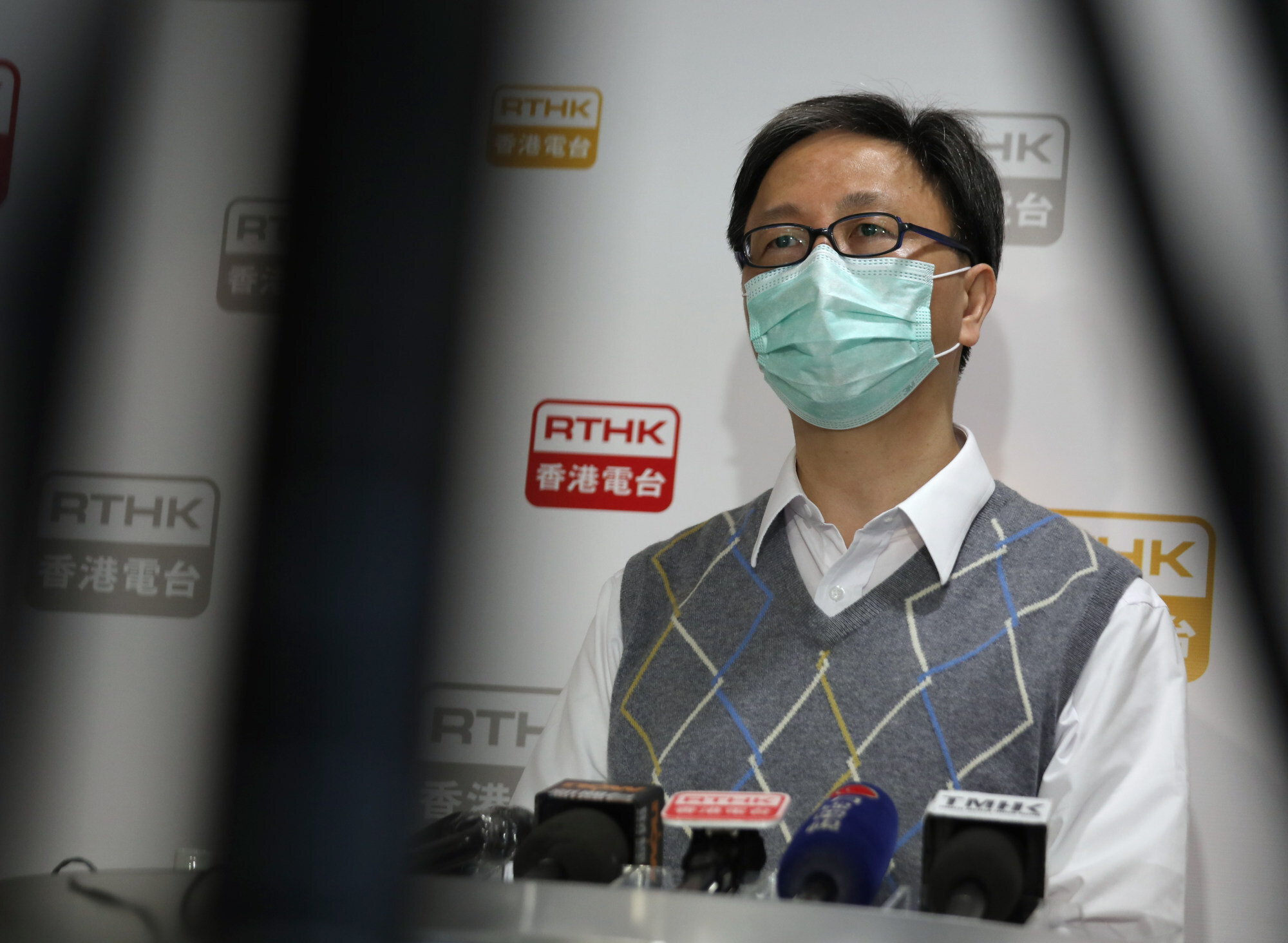
Hong Kong urged to allow elderly travellers to quarantine at home after veteran actor Kenneth Tsang dies at quarantine hotel
- Health official says actor Kenneth Tsang did not respond after contractors knocked on his door for random Covid-19 test
- Microbiologist Dr Ho Pak-leung says government could consider allowing those with special needs to quarantine at home under certain conditions after actor’s death
Elderly travellers should be allowed to isolate at home if certain conditions are met, a leading health expert has said, after 87-year-old veteran Hong Kong actor Kenneth Tsang Kong died while undergoing quarantine at a Kowloon hotel.
Tsang’s family declined to say whether he was given timely medical help at the hotel, with the actor’s daughter Musette Tsang adding the focus was on making funeral arrangements.
“There were not many things the hotel could do … there could be a lot of emergencies everyone needs to respond to,” she said after identifying her father’s body at the public mortuary in Kwai Chung. “We don’t need to make too many comments.”

The celebrated actor was found dead in his room in the Kowloon Hotel on Nathan Road on Wednesday while undergoing quarantine after a trip to Singapore. He had received three doses of a Covid-19 vaccine, sources said.
Dr Chuang Shuk-kwan, head of the communicable disease branch at the Centre for Health Protection, on Thursday said the coroner’s preliminary investigation found no trace of Covid-19. She added the actor also tested negative during his stay at the hotel.
The health official said personnel contracted to carry out random polymerase chain reaction tests during travellers’ third day after arriving in the city had knocked on Tsang’s door and received no answer. They then contacted hotel staff to follow up.
Tsang’s ex-wife reportedly said he had asked his family for medicine and food the day before he died.
It was also reported the hotel had asked the family to obtain approval from the Department of Health to open the room door to check on Tsang, despite authorities later saying prior permission was not needed in an emergency.
Hong Kong leader rules out bringing forward next round of social-distancing easing
Chuang stressed that quarantine hotels should use common sense to decide whether such requests were reasonable and staff did not need to consult authorities every time.
She also confirmed that Tsang’s family had delivered a package to him on Tuesday night. Chuang said the actor had called the hotel’s reception at around 8pm to check on his delivery and he received it before 9pm, adding he had not requested any medical assistance during his stay.
Musette Tsang said she had been in close contact with her father in his final few days, and they talked about his trip and food. She added that he had high blood pressure, which she considered normal at his age.
“It has already happened. It is more important for our family to let it sink in and process this,” she said. “We are still discussing his funeral arrangements, but we would prefer it to be low profile.”

She also thanked the public for caring about her father.
“I hope that he delivered great performances and stories to you all, and people will remember him as being young, handsome and excellent at acting,” she said. “He loved having fun and eating different foods. He really enjoyed his life. I hope people will remember this side of him.”
Timothy Chui Ting-pong, executive director of the Hong Kong Tourism Association, said he believed what happened at the hotel was a one-off incident.
“The quarantine hotel policy has been in place for at least 1½ years,” he said. “This is the first time something like this has happened.”
Chui noted that hotels had surveillance cameras to monitor occupants, but he said it was difficult for staff to constantly watch and check on people due to the need to minimise infection risks and to also respect guests’ privacy.
Dr Ho Pak-leung, a leading microbiologist at the University of Hong Kong, noted that elderly people with pre-existing health conditions could die during a medical emergency such as a heart attack or stroke if no one was available to provide immediate help.
“If no one is able to provide medicine or dial 999 for the elderly, the victim may not be saved within the ‘golden hour’ and unfortunate events may happen,” he told a radio programme. “Whether Tsang was in this situation, the authorities can further investigate.”
Five of late Hong Kong actor Kenneth Tsang Kong’s best screen roles
Ho said the government could consider allowing those with special needs to quarantine at home.
“If [travellers] fit certain criteria or have certain needs, they can quarantine at home,” he said. “Two years ago [when home quarantine was allowed], we did not have enough weapons to fight the virus. But we now have adequate measures to deal with outbreaks.”
Asked about Ho’s suggestion, Chuang said those who had special needs could apply for family members to accompany them during quarantine to care for them.
Ho said Hong Kong was “out of touch” in terms of quarantine policies compared with other places around the world where compulsory requirements had been lifted. He added that Hong Kong could learn from places such as Singapore, which requires people under home quarantine to report their location through an app.

But Professor David Hui Shu-cheong, a government pandemic adviser, said home quarantine should not be allowed in general.
“Home quarantine will bring variants into the community. The risk is even higher. We cannot loosen [the policy] just for convenience … The Cathay Pacific aircrew lesson must be learned,” Hui said, referring to incidents where Omicron-carrying airline staff who were home-quarantining spread the virus at the start of the fifth wave of cases in late December.
He said most flats were not suitable for home quarantine due to the lack of separate rooms and toilets. But if necessary, it could be made possible for people to quarantine at home when the residential conditions allowed and if their whereabouts were monitored with an electronic device.
In a statement on Wednesday, the Food and Health Bureau said quarantine hotel staff could enter people’s rooms without prior approval from government departments for safety reasons or emergencies. The bureau added that hotel staff had to wear personal protective equipment when entering rooms and notify relevant government authorities afterwards.
Health authorities confirmed 413 Covid-19 infections on Thursday, of which 24 were imported, and five deaths related to the virus.
Officials also reported a second case of the Omicron sublineage BA.5, involving a 40-year-old man who arrived from South Africa on April 23. He tested positive at the airport and was transferred to the Regala Skycity Hotel community isolation facility.
The city’s official Covid-19 tally stood at 1,203,481 cases, with 9,287 related fatalities.



